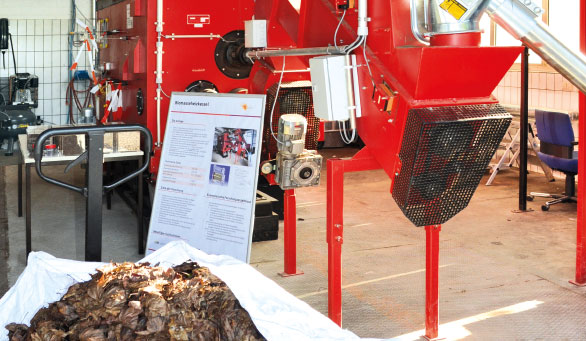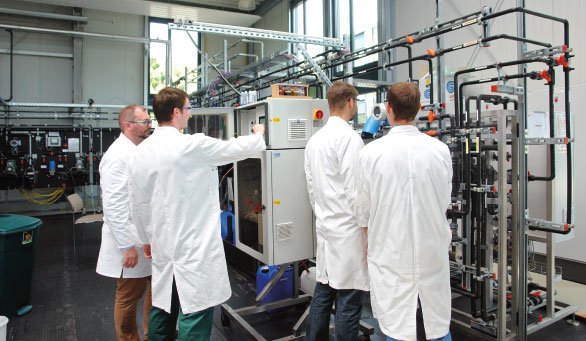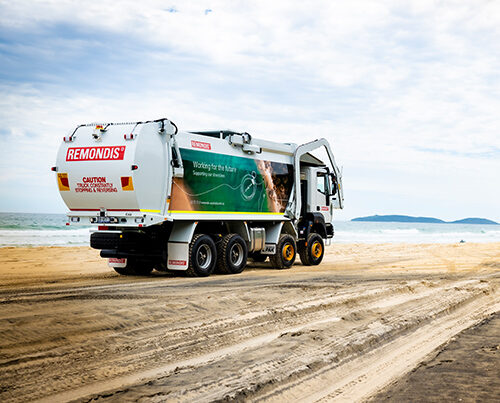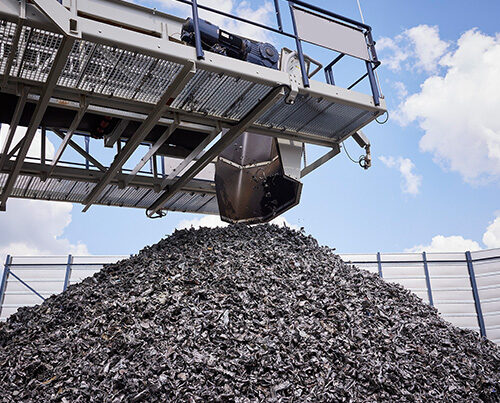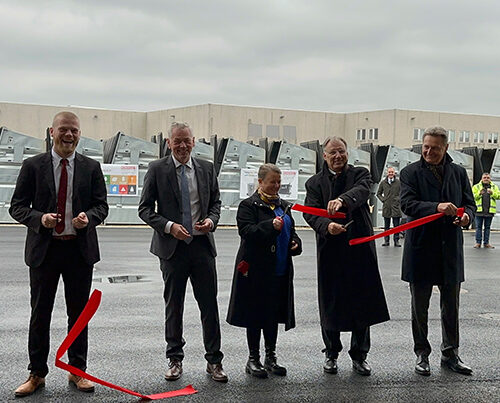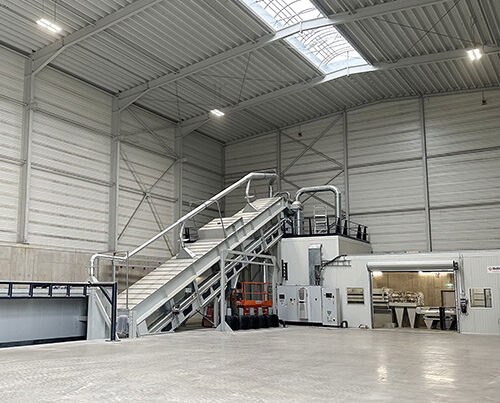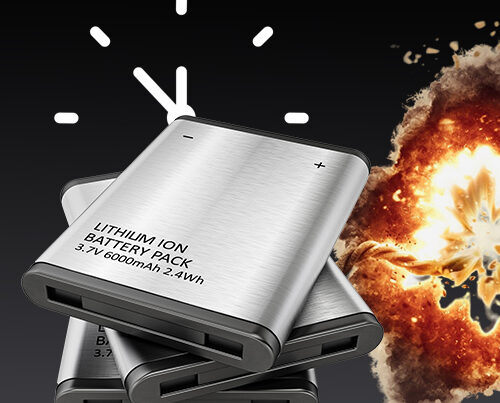A promising collaboration project
“We approached the universities that specialise in the different fields and got them on board,” commented Monika Lichtinghagen-Wirths – before listing a whole number of well-known universities (from the TH Cologne, to the RWTH Aachen, to the University of Duisburg Essen) who work together with :metabolon’s teaching and research centre in Lindlar. Over the last few years, the waste management association, Bergische Abfallwirtschaftsverband, and the TH Cologne have transformed the old Leppe landfill into a centre for environmental and resource technology that is attracting students from all across the state

Practice-oriented research work
:metabolon’s centre has permanent places for 30 university students enabling them to carry out research work into modern recycling technology which they can then include in their Bachelor or Master’s dissertation. In addition, it regularly organises summer schools and welcomes other undergraduates and graduates looking to make the most of the excellent facilities on offer. These include three semi-industrial recycling plants; two more are due to be added next year. They are fully functional and students can use them for their research projects. These machines are considerably smaller than those found in a professional recycling plant but they are large enough to create realistic conditions.

The official opening of :metabolon’s teaching and research centre: Jochen Hagt, District Administrator of the ‘Oberbergischer Kreis’ district, Prof. Rüdiger Küchlern, Vice President of TH Cologne, and Monika Lichtinghagen-Wirths, Bergischer Abfallwirtschaftsverband (from left to right)
”Research is just one element of a project. We believe it’s really important to continue the work and see it through to the end.”
Monika Lichtinghagen-Wirths, Bergischer Abfallwirtschaftsverband
More than 30 research projects
“What is important here is that we can work with smaller volumes and shorter treatment times which means we can analyse the findings more quickly and perform follow-up tests,” explained Prof. Christian Malek, who works for the Faculty of Computer Science and Engineering at the TH Cologne and is based at :metabolon.
The goal of this research centre is to find out how more recyclable materials can be recovered from waste and then turn these findings into tangible benefits for society as a whole. More than thirty recycling projects have already been carried out in Lindlar – with them focusing on processing waste, converting materials and closing new material life cycles. Moreover, it also looks into landfill technology, for example for collecting and treating leachate. The research work is not only targeted at benefiting the German recycling sector but also at helping other continents. A number of students from the TH Cologne, for example, recently developed a furnace at the :metabolon centre that enables waste cocoa shells to be thermally treated and the heat to be recovered. They decided to do this because these shells are normally dumped in large quantities on the fields in Africa which makes it more difficult to harvest the following year’s crop. “Research is just one element of a project. We believe it’s really important to continue the work and see it through to the end. Which is why we have a team on site that focuses on doing just that,” Monika Lichtinghagen-Wirths continued.
In addition to its research centre, :metabolon has facilities for teaching schoolchildren of all ages, offers a whole range of leisure activities and hosts special events. More metabolon.de
Financed via grants
This joint research centre is run by Bergischer Abfallwirtschaftsverband and the TH Cologne, who have been working together since 2007, and is financed almost entirely from grants. These have come from the German state of North Rhine-Westphalia, various Federal government ministries and the European Union. All in all, :metabalon has already received 20 million euros in grants to support its research work, something Monika Lichtinghagen-Wirths is very proud of. “We believe there should be even more grants available to help conserve our raw materials. It makes no difference whether :metabolon receives them or another research institute. We need to find out more about processing, recycling and using recycled raw materials right now or we will find ourselves facing a huge problem in the future,” she continued, giving plenty of food for thought.
Semi-industrial recycling facilities create ideal conditions for the students’ research work
More information should be shared in the future
Future plans are to set up a network of expertise that should focus on recycling. It will comprise a number of project groups who will decide which research work is most urgently needed in this field. A committee consisting of politicians and trade association members is to be set up to provide decision makers with proposals regarding possible funding programmes. A network of research institutes with relevant projects might also be created in addition to suitable sponsorship schemes. “Many institutes are carrying out similar research work and they could support each other by exchanging information. This would also prevent money being spent twice on researching the same topic,” Monika Lichtinghagen-Wirths concluded.
Image credits: image 1: Shutterstock: Jacob Lund


